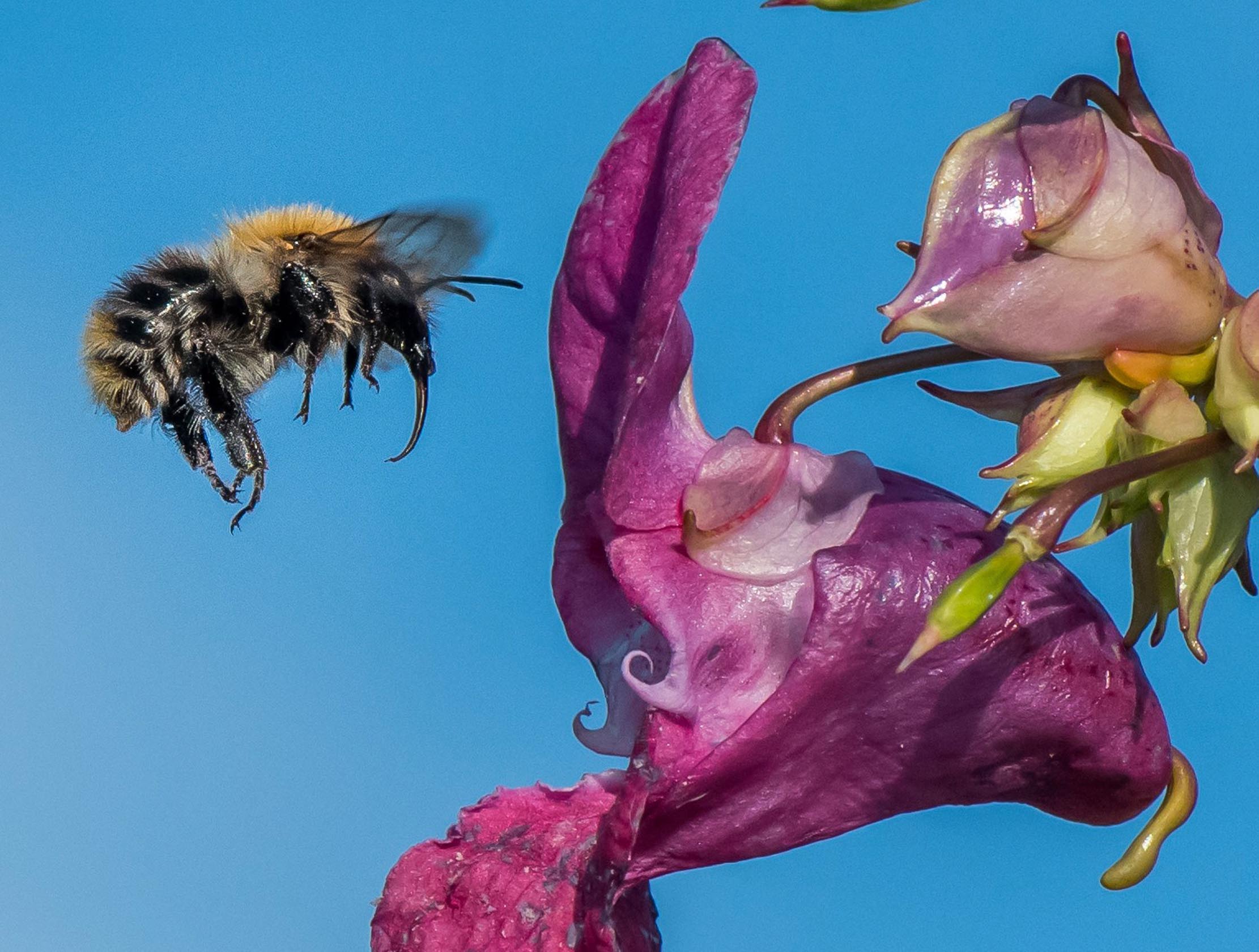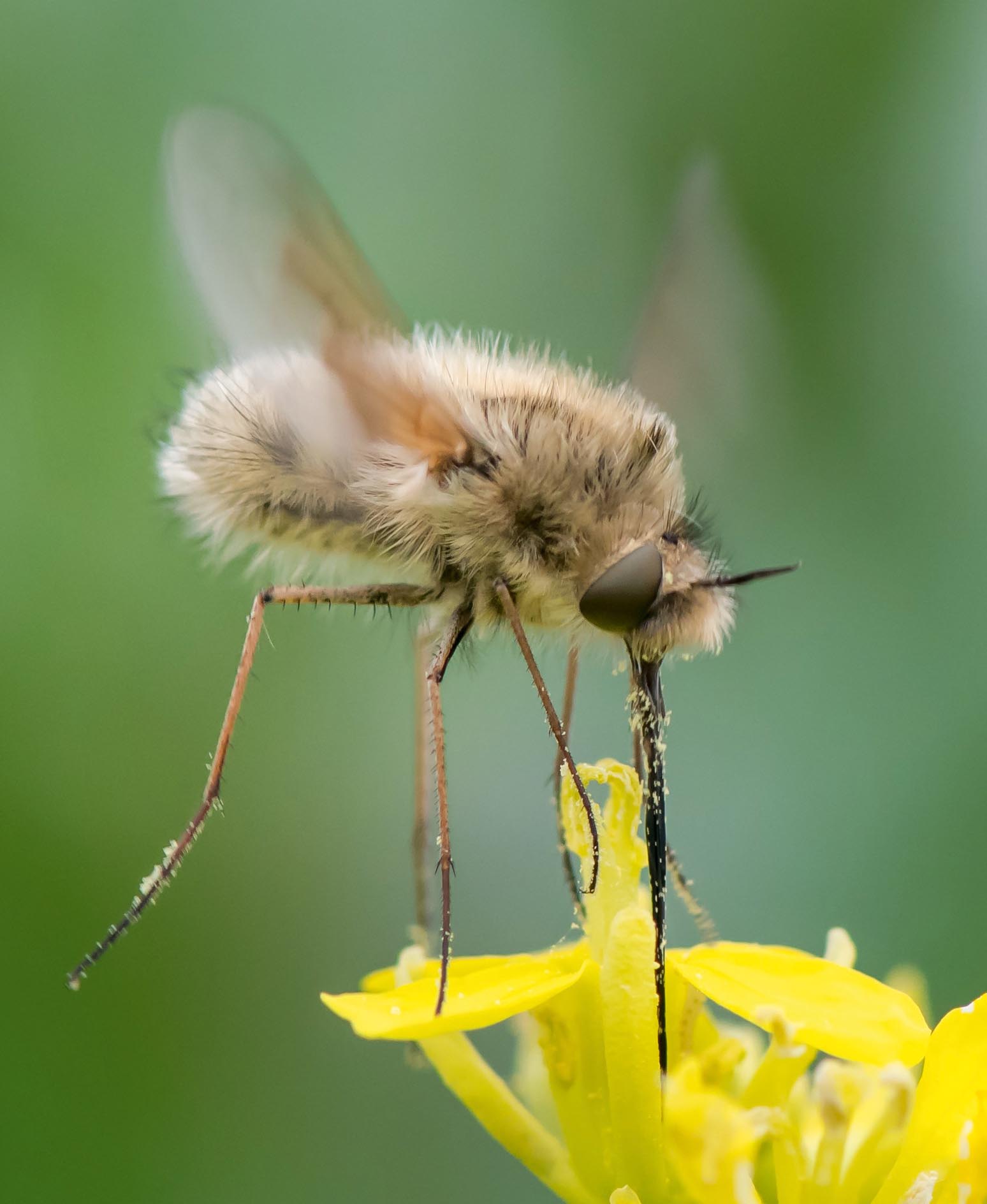Avoiding the Insect Apocalypse: 'Love them or loathe them, we need insects'
Naturalist and author Dave Goulson explains the shocking drop in insect numbers, and explains what we can do to help before it's too late.


Insects have been around for more than 400 million years, their ancestors crawling from the oceans to colonise the land long before dinosaurs appeared. They have been enormously successful, evolving into a staggering diversity of more than one million known species, with perhaps as many as another four million yet to be described by science. There are more than 300,000 different types of beetle alone.
I have been obsessed by insects all my life; they are amazing, often beautiful, and lead fascinating, peculiar lives. The world wouldn’t function without these tiny creatures — they pollinate, control pests, recycle organic material (from dung to corpses, tree trunks and leaves), they keep soil healthy, disperse seeds and much more besides. They provide food for many larger creatures.
An alien looking down at Earth at any time in its history before the past 200 years would have concluded that insects were the dominant life force. It should thus be of deep concern that insects appear to be undergoing massive decline.
How to help insects
• Grow bee-friendly flowers (for ideas, read Dave's book Gardening for Bumblebees) • Turn some of your lawn into a mini meadow • Make or buy a bee hotel • Avoid using pesticides • Learn to love weeds such as dandelions • Dig a pond (even a tiny one) • Grow fruit and veg • Buy local, seasonal and organic food • Campaign for your town to become pesticide free (visit www.pan-uk.org/pesticide-free for advice)
In Germany, flying insects have declined by 76% in the past 27 years. In the UK, our more common butterfly populations have fallen by 46% since 1976, the rarer ones by 77%, despite great efforts by organisations such as Butterfly Conservation. Thirteen UK bee species have become extinct and more may follow. In the US, the monarch butterfly, famed for its annual migration between Mexico and Canada, has declined by more than 80% since the 1980s.
As a child, I vividly remember my parents having to stop on long summer journeys to scrub the windscreen clear of splatted insect corpses. Today, our windscreens are disturbingly clean. This has all happened within our lifetime and on our watch.
The causes of this decline are many: habitat loss to intensive farming, housing and other developments; the blizzard of pesticides used by farmers and gardeners; climate change; light pollution; invasive species and more. Our tidy world is largely hostile to insect life.
Exquisite houses, the beauty of Nature, and how to get the most from your life, straight to your inbox.
This may all seem terribly depressing, but don’t despair. We feel helpless in the face of many global environmental issues, but we can all help with halting and reversing insect declines. Most species are not yet extinct and could recover quickly if we gave them space and somewhere to live and feed in peace. If you are lucky enough to have a garden, take simple steps to invite insects in. It’s astonishing how much life a small garden can support.
Biologist and wildlife gardener Jenny Owen spent more than 30 years obsessively cataloguing every plant and animal she could find in her modest eighth-of-an-acre garden in urban Leicester, eventually recording no fewer than 2,673 different species, 1,997 of which were different types of insect. Britain has about 22 million private gardens; think how much life they could collectively support. Grow a single marjoram plant, perhaps in a pot on your balcony or roof terrace — when it blooms, I guarantee that bees and hoverflies will sniff it out. You can feel smug that you have done something to help. Then, do something more.

If you have no garden, consider joining national and local campaigns to fill our urban greenspaces with wildflowers or to have your town or village declared pesticide-free. Imagine every park, cemetery, roundabout and road verge filled with swathes of wildflowers; we could create a network of wildlife-rich habitat, from Land’s End to John o’Groats.
We shouldn’t forget our farmland, which covers 70% of the UK. It is my view that the move towards ever-more-intensive farming is unsustainable — it has done terrible damage to our wildlife and soils, pollutes streams and rivers and contributes to greenhouse-gas emissions. You can reduce your own impact and support more sustainable farming practices by buying and eating local, seasonal, organic produce, buying loose fruit and veg, and reducing your meat consumption. Better still, grow what food you can yourself.
Love them or loathe them, we need insects. Three-quarters of the crops we grow need pollinators. We have to learn to live in harmony with Nature, seeing ourselves as part of it, not ruling it with an iron fist. Our survival depends upon it, as does that of the glorious pageant of life with which we share our planet.
‘Silent Earth: Averting the Insect Apocalypse’ by Dave Goulson is published by Jonathan Cape (£20)
